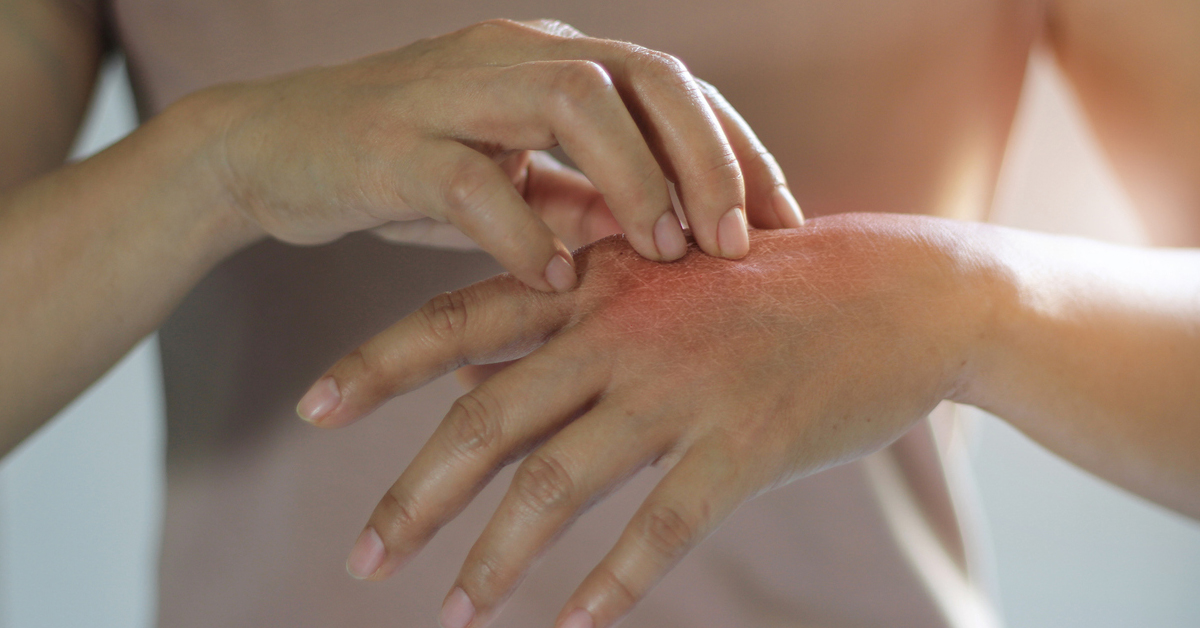If you are scratching at a dry and patchy area on your skin, you might find yourself wondering if the irritation is simply due to a common rash or if something more serious could be at play. Learning about psoriasis can help you spot the telltale signs of this skin disease and determine whether you are experiencing a common skin rash or if a doctor’s visit is in order.
What is Psoriasis?
Psoriasis is a common, long-term disease that causes red, scaly, and itchy patches on the skin. The most commonly affected areas are the knees, elbows, trunk, and scalp. Psoriasis is an incurable disease that tends to occur in cycles. It can flare up for weeks or months at a time and then go through periods of remission.
Psoriasis is an autoimmune disease in which part of the body’s own immune system becomes overactive and attacks normal tissues in the body. Researchers believe that genetics and environmental factors can both play a role in the development of psoriasis. Psoriasis is not contagious.
Psoriasis Treatment
The following are the most common symptoms associated with psoriasis:
- Red patches of skin covered with thick, silvery scale
- Swollen and stiff joints
- Dry, cracked skin that may bleed or itch
- Itching, burning, or soreness
- Thickened, pitted, or ridged nails
Psoriasis Treatment Options
Although there is no cure for psoriasis, there are treatments you could receive to help you live with psoriasis better. The following are some of the available treatments for psoriasis disease:
- Topical Therapies: Corticosteroids, Vitamin D analogs, Retinoids, etc.
- Light Therapies: Sunlight, UVB broadband, UVB narrowband, Excimer laser
- Oral or Injected Medications: Steroids, Retinoids, Methotrexate, Cyclosporine, Biologics
- Alternative Medicine: Aloe extract cream, Fish oil supplements, Oregon grape, Essential oils
If you are considering alternative therapies or dietary supplements to treat your psoriasis, it is always best to consult with your physician.
Common Rash VS Psoriasis
Psoriasis can have similar symptoms to many other skin conditions like acne, eczema, ringworm, and heat rash. These conditions can also be accompanied by inflammation, itchy patches, and scaly skin areas. Acne, eczema, ringworm, and heat rashes all have treatments that are different from psoriasis treatment, so it’s important to determine exactly which condition is affecting your skin.
If your skin rash becomes worse over time, does not respond to at-home treatment, causes you discomfort and pain, or leads to joint pain and swelling – it’s time to see a doctor.
Most of the time, your doctor can diagnose psoriasis by performing a physical examination. However, a skin biopsy may be needed to rule out other possibilities and arrive at a definitive diagnosis.
UAB Medical West Cares About Your Skin Health
Taking care of your skin health is important, and we are here to help. Distinguishing common rashes from psoriasis can guarantee that you are receiving proper treatment for the specific condition you have. Whether you already received a psoriasis diagnosis or would like to learn more about taking care of your skin health, UAB Medical West is here to care for your needs. Schedule an appointment with us today – in Hueytown, Hoover, Bessemer, McCalla, and Vance.
